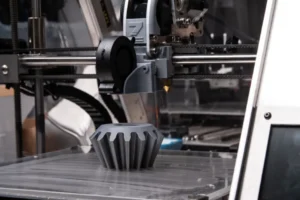
As a proud owner of a new SUV, you’re probably eager to explore all its capabilities and enjoy the freedom it brings. But before you hit the open road, it’s essential to understand the importance of regular SUV maintenance to ensure your vehicle performs at its best for years to come.
Many beginners in SUV ownership may be under the impression that maintenance is only necessary for older vehicles or those with high mileage. However, the truth is that even new SUVs require regular care to maintain optimal performance, extend their lifespan, and prevent costly repairs down the road.
Regular SUV maintenance is like giving your vehicle a tune-up, ensuring all its components are functioning smoothly and efficiently. It’s like investing in your SUV’s well-being, ensuring it remains a reliable and enjoyable companion for many adventures to come.
Table of Contents
Understanding Your SUV’s Maintenance Schedule
Every SUV comes with a manufacturer’s recommended maintenance schedule (RMS), a detailed guide outlining the specific maintenance tasks and their recommended intervals. This schedule is tailored to your SUV’s unique make, model, and expected usage patterns.
Adhering to the RMS is crucial for several reasons:
- Warranty Coverage: Following the RMS helps maintain your SUV’s warranty coverage, protecting you from unexpected repair expenses.
- Optimal Vehicle Health: Regular maintenance ensures your SUV is operating at its peak performance, preventing premature wear and tear and extending its lifespan.
- Safety: Proper maintenance ensures critical safety systems, such as brakes and tires, are functioning correctly, keeping you and your passengers safe on the road.
Locating your SUV’s RMS is typically straightforward. Consult your owner’s manual or search online for the specific schedule for your make and model. The RMS is usually presented in a table format, listing the maintenance tasks and their corresponding mileage or time intervals.
Essential SUV Maintenance Tasks
Now that you understand the importance of following the RMS, let’s delve into some essential SUV maintenance tasks that you should be familiar with:
Routine Oil Changes
Regular oil changes are the cornerstone of SUV maintenance. Engine oil acts as a lubricant, reducing friction and preventing wear and tear on internal components. Over time, oil breaks down and loses its effectiveness, making it essential to change it at the recommended intervals.
Tire Maintenance
Tires are your SUV’s connection to the road, so maintaining them properly is crucial for safety and performance. Check tire pressure regularly, ensuring they are inflated to the manufacturer’s specifications. Inspect tire tread for uneven wear or damage, and replace tires when necessary.
Fluid Level Checks
Various fluids keep your SUV’s systems operating smoothly, including engine coolant, brake fluid, and power steering fluid. Regularly check and replenish these fluids according to the RMS to ensure optimal performance.
Filter Replacements
Air filters, cabin filters, and fuel filters play a vital role in maintaining engine efficiency, air quality, and fuel system health. Replace these filters according to the RMS to ensure your SUV continues to breathe easy and run smoothly.
Brake Inspections
Brakes are your primary safety system, so regular inspections are essential. Have your brakes inspected by a qualified mechanic at the recommended intervals to ensure optimal braking performance and identify any potential issues early on.
Additional Maintenance Tips for Optimal SUV Performance
Beyond the essential tasks outlined above, there are additional steps you can take to maintain your SUV’s peak performance:
Regular Vehicle Inspections: Conduct periodic visual inspections of your SUV’s exterior, interior, and undercarriage. Look for signs of leaks, loose components, or unusual wear and tear. Address any issues promptly to prevent further damage.
Addressing Early Warning Signs: Don’t ignore warning lights, unusual noises, or changes in performance. These could be indicators of underlying problems. Promptly address these signs to prevent further damage and costly repairs.
Seeking Professional Assistance: While some basic maintenance tasks can be done yourself, it’s always a good idea to consult a qualified mechanic for more complex repairs or specialized maintenance procedures.
Maintaining SUV Performance during Different Seasons
SUV maintenance varies slightly depending on the season:
Winter Preparation
Winter driving conditions demand extra preparation. Switch to winter tires for better traction and handling in cold and snowy weather. Check your battery’s health and ensure antifreeze levels are adequate.
Summer Maintenance
Hot weather can put a strain on your SUV’s cooling system. Check coolant levels regularly and ensure your air conditioner is functioning properly.
Regular Cleaning and Detailing
Regular cleaning and detailing not only enhance your SUV’s appearance but also help protect its exterior and interior from damage caused by dirt, grime, and harsh weather conditions.
Benefits That You Can Have by Maintaining SUV Regularly
Ensure cost-effectiveness and environmental responsibility with regular SUV maintenance, including understanding costs, keeping records, seeking expert advice, and reducing emissions.
Cost-Effectiveness of Regular Maintenance
Highlight the long-term cost savings associated with regular maintenance. While individual maintenance tasks may incur upfront expenses, they help prevent more costly repairs and breakdowns down the road. Regular maintenance also contributes to fuel efficiency, saving you money on fuel costs over time.
Understanding Maintenance Costs
Provide an overview of typical maintenance costs, breaking down the expenses into categories such as routine oil changes, tire maintenance, and fluid level checks. This information can help readers budget for maintenance and make informed decisions about their vehicle care.
Maintenance Records and Documentation
Emphasize the importance of keeping detailed maintenance records, including dates, mileage, and specific tasks performed. These records serve as valuable documentation for future reference, warranty claims, and trade-in value.
Seeking Professional Advice
Encourage readers to consult a qualified mechanic or service center for personalized advice and tailored maintenance plans based on their specific SUV model, driving habits, and environmental conditions.
Environmental Impact of Maintenance
Discuss the environmental benefits of regular maintenance, such as reduced emissions, improved fuel efficiency, and extended vehicle lifespan. This aspect can resonate with eco-conscious readers and highlight the responsibility of responsible vehicle ownership.
Maintain Your SUV’s Peak Condition for Every Adventure
Regular SUV maintenance is an investment in your vehicle’s performance, longevity, and safety. By following the manufacturer’s recommended maintenance schedule and adopting the additional tips provided in this guide, you can ensure your SUV continues to provide years of reliable service and enjoyable adventures.
Remember, even if you’re a beginner in SUV ownership, you can take charge of your vehicle’s maintenance by understanding the essentials, following the RMS, and seeking professional assistance when needed. By taking proactive care of your SUV, you’ll reap the rewards of optimal performance, extended lifespan, and enhanced safety on every journey.
Happy driving!








